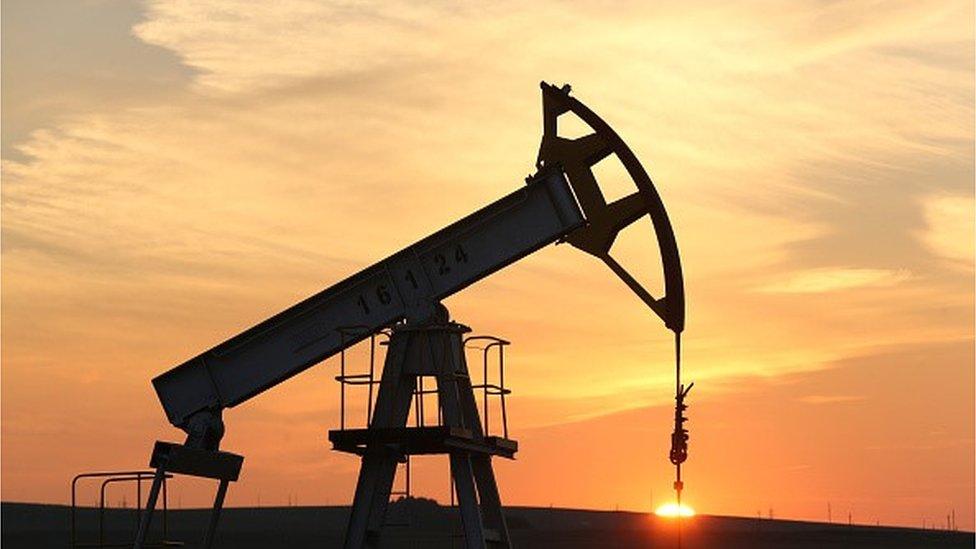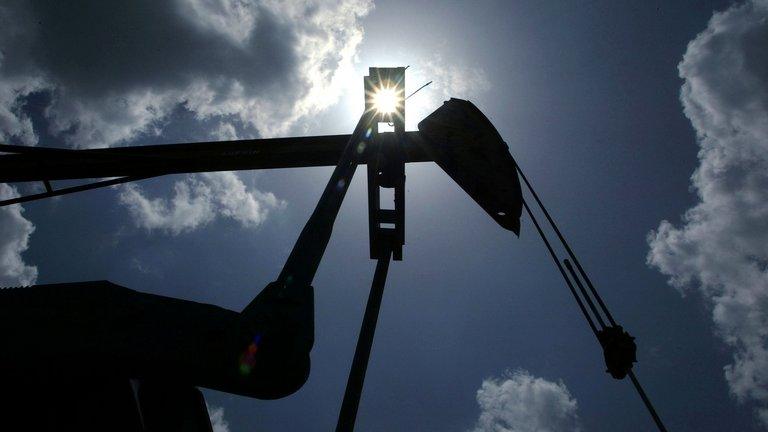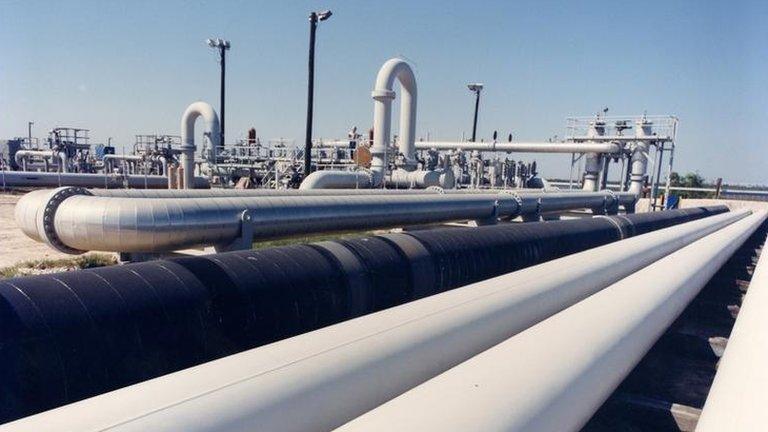Oil hits $40 a barrel amid commodities comeback
- Published

The oil price has gone above $40 a barrel for the first time this year as commodities continue to rally.
Brent crude, used as an international benchmark, rose more than 5% to trade at $40.83 a barrel.
Oil dropped below $28 in January, but has since risen as part of a wider recovery in energy and metal prices.
The price of iron also shot up, rising 20% amid greater optimism about Chinese economic growth and demand for the metal in the country's refineries.
The price of Brent crude has now gone up more than 40% from the low it reached in January, although it remains 70% below its peak in the summer of 2014.
The rise is being put down to talks taking place between oil-producing countries in an effort to curb production.
No concrete agreements have been reached, but a number of key oil-producing nations are meeting in Moscow this month.
Meanwhile, ratings agency Fitch said oil prices would remain at an average of $35 a barrel this year.
Supply glut
Simon French, chief economist at Panmure Gordon, urged caution over the oil price increase, saying it might be short-lived.
"A large part of the oil price movement in recent days has been short covering, where investors having taken a bet on low prices are insuring themselves against the risk of higher prices. Very little has changed in the oil market to correct the supply glut," he added.
Commodities in general had a strong upbeat day, with prices rising for iron ore, copper and aluminium.
Iron ore rose 20%, its biggest increase in eight months, on expectations that China was cutting production.
The slowing Chinese economy has led to a fall in demand for iron ore, which has partly led to a global glut. China is one of the biggest consumers of steel in the world.
Iron ore was trading at $63.74 a tonne, which is the highest since June 2015.
The metal touched $38.30 in mid-December 2015.
The price of copper has increased by 6.9% in 2016 and aluminium is up 5.3%.

Analysis: Andrew Walker, BBC Economics correspondent:
Does this rally in the price of crude oil have legs? There are reasons to suspect that it might not.
Traders have certainly taken encouragement from the efforts among oil-producing countries to address the supply glut.
There has been no concrete agreement, though Russia, Saudi Arabia and two others did say they would freeze production, provided others came on board.
A group of producer countries are meeting in Moscow later this month. Perhaps they will agree co-ordinated action.
But Iran, emerging from sanctions, is unlikely to join in. And higher prices might bring some more oil back on stream from American shale producers who were previously hit by the fall in prices.
And then there's the question of demand for oil.
If we had more bad news about the world economy, it would weigh on the price of crude oil.

Adam Laird of Hargreaves Lansdown said traders would wait and assess the situation.
"Today's trading was extraordinary. Metal prices can be volatile, but it is rare to see price rises of this magnitude in any asset. It is a signal of markets' desperation."
He said: "China is a major consumer of steel and prices are reacting to any hint of an uptick in demand. But in the context of the falls of the last few years, today's price is still low. "
It was, he said, "too early to say if this is a true bounce".
- Published9 February 2016

- Published18 January 2016
